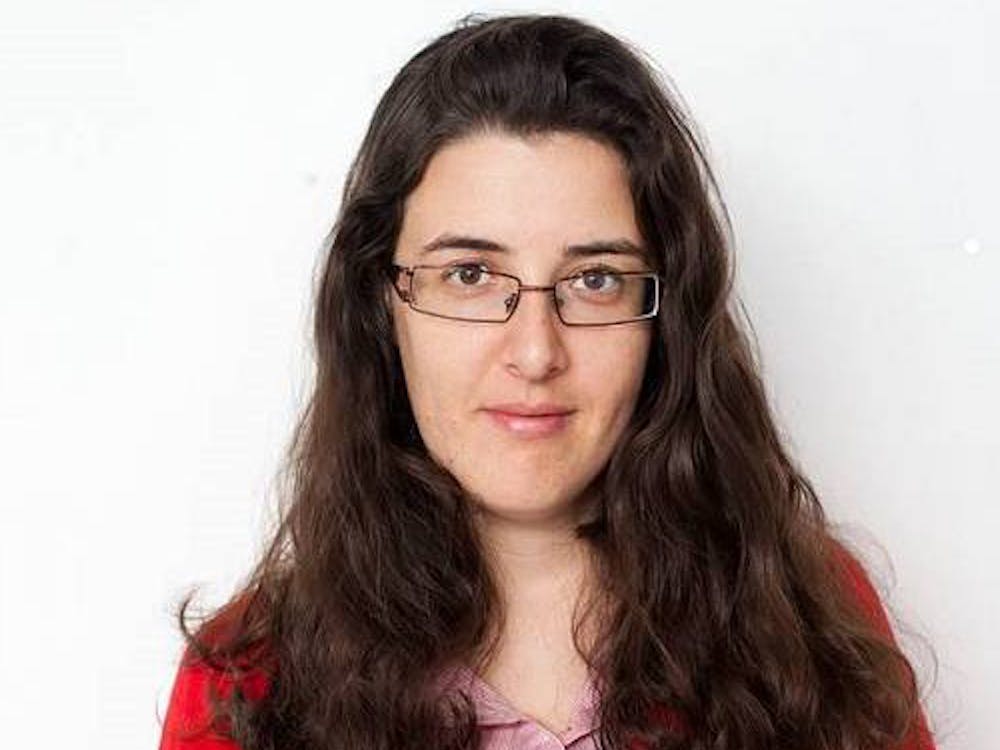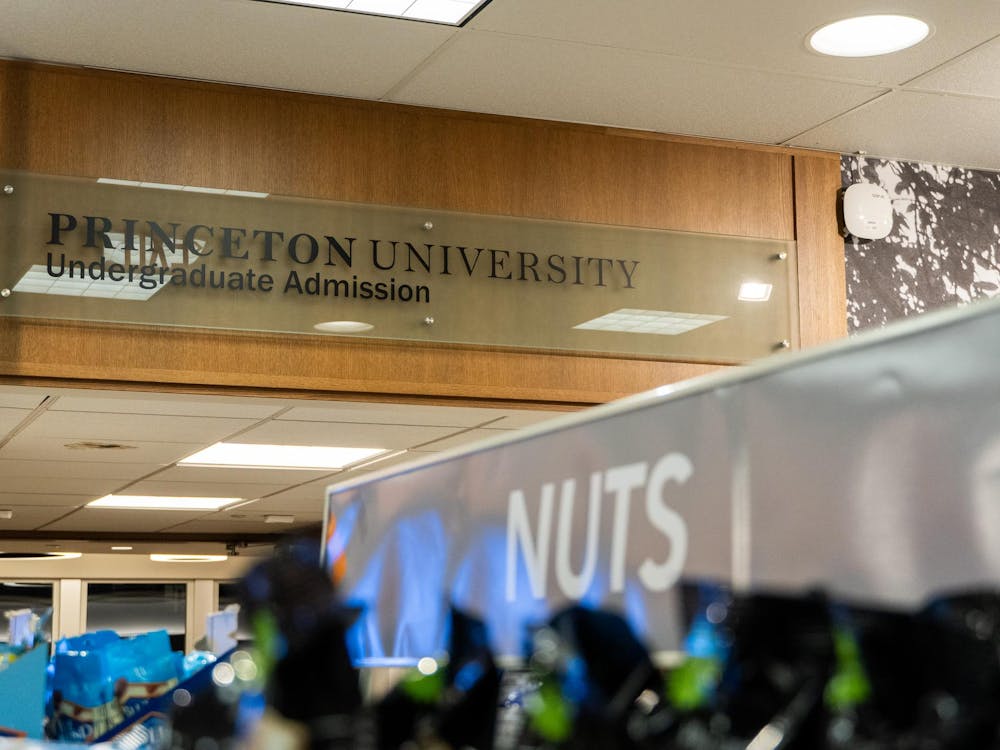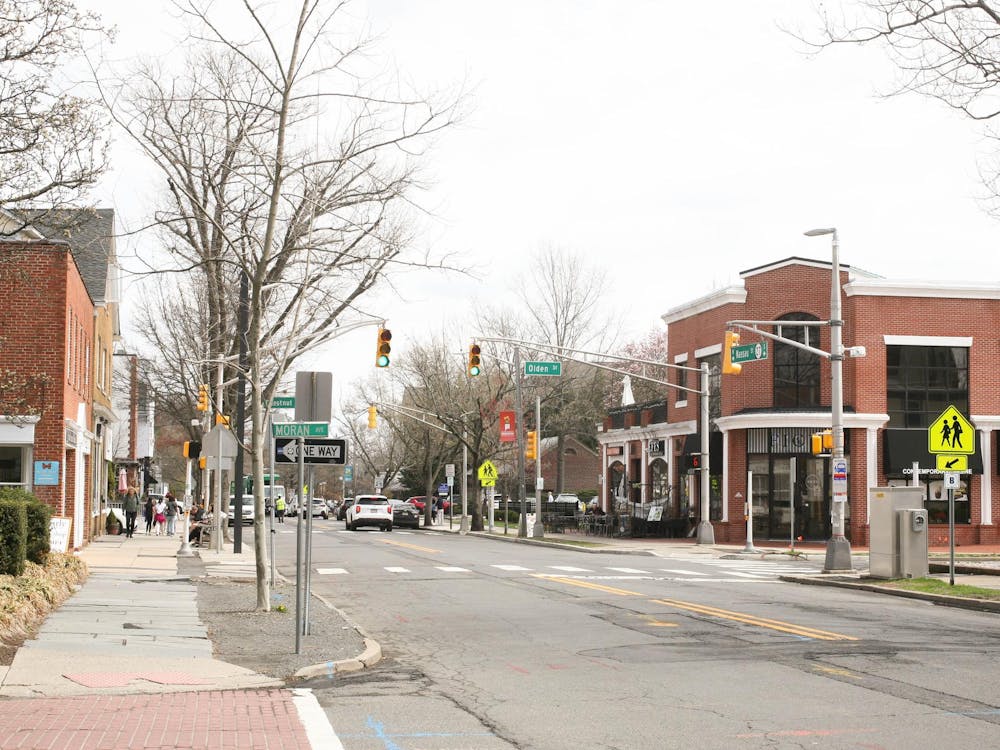“Climate change is hard because you can’t see it like you can see trash in the streets — the most vulnerable people in the world feel it, but they are so far away from us,” said World Wildlife Fund CEO Carter Roberts ‘82.
The Princeton University Conservation Society hosted a Q&A with Roberts onThursday in McCosh 10. Wilson School Professor David Wilcove moderated. The Q&A focused on the importance of shifting our attention toward international sustainability, as well as Roberts’ experience as CEO of the WWF.
Roberts said nature and the immediacy of the outdoors influenced his decision to work for an environmental agency.
“I tried to start a business in 1988 to deliver to mothers products that were both good for the children and for the planet,” he explained. “I love nature and wanted to combine that with business.”
Roberts said that business, along with a strong relationship with other countries in their sustainable food production, is a key part in forming a reliable model for living with the threat of rising temperatures and dynamic environments. The mission statement of the WWF broadly points to this, exhorting action to “build a future where people live in harmony with nature.”
Wilcove asked Roberts what he has done as CEO of the WWF to meet its mission statement. The answers were both numerous and impressive.
“We wanted to build up a program on sustainable food production, to change the way food is produced, as well as build relationships with companies in order to ensure our goals were met,” Roberts said.
Select companies have disproportionate influence over whether or not products are sustainably produced, he added.
“We devoted a lot more time and resources to sustainable agriculture,” added Roberts. The WWF has close relationships with major retailers and companies such as Walmart, Microsoft, Coca-Cola, and so forth. Roberts launched Project Gigaton with Walmart, where they are working to reduce their emissions by as much as the project name implies.
Roberts has also worked extensively on policy. He took part in the Paris agreement, was a part of bilateral agreements between the US and China such as the recent ivory ban, and has launched clean energy programs in Mexico and Indonesia.
Coming up with solutions for environmental issues is different for each country, Roberts said.
He added that China has played a pivotal role in climate change in comparison to the rest of the world, and has recently seen a comparative economic advantage as it strives for renewable energy in its markets.

Wilcove asked how countries typically respond to these plans. Again, Roberts’ answers illustrated why the environment remains a politically delicate issue.
Many countries, when approached with environmentally friendly alternatives to their market structures, are quick to point out that the consumption of the United States is much larger per capita than most countries, Roberts noted.
“More of the world wants to live like we do,” he explained.
Roberts noted that countries such as India quickly ask why they should give up an opportunity to improve their country when the United States has done so at the cost of implementing many environmentally damaging policies in the past.
In essence, the key to comprise lies in the popularity of the policy, Roberts said.
Roberts cited an example in China when the basketball star Yao Ming ran an ad against the consumption of shark fin soup, a popular ceremonial item used in many high-end venues across several countries. He said the country’s obsession with shark fin soup led to the endangerment of a quarter of the shark species and resulted in innumerable cruel deaths; however, the ad had a positive impact and nearly halved the shark fin consumption in China.
Roberts explained that this campaign not only created a force for positive change, but also broke a rigid system deeply rooted within many countries across the world.
“The rest of the world is watching,” said Roberts. “The only conservation that’s going to last is the conservation that begins with people.”
Roberts added that governments and businesses come and go, but people are the ones that are going to survive.
When asked about the current Trump administration, he affirmed that poor administration will affect environmental politics, but not as intensely as we might think.
“Cities and other localities will get after climate change no matter the circumstance,” said Roberts. “It’s not over, but it’s not apocalyptic — we have a lot of work to do.”
James Currah ’19, a board member of the Princeton Conservation society, said that it is wonderful to have brought such a leading figure in the world of conservation to the University.
“We feel really fortunate,” he said.
“Carter Roberts was a pleasure to have on campus, always open to tough questions and took the time to meet every student,” said Noah Mihan ’19, the founder of the Princeton Conservation Society. “It was even hard to pull him away from conversations when it was time to leave,” he remarked.
The lecture took place in McCosh 10 at 5 p.m. on Thursday, April 12.







